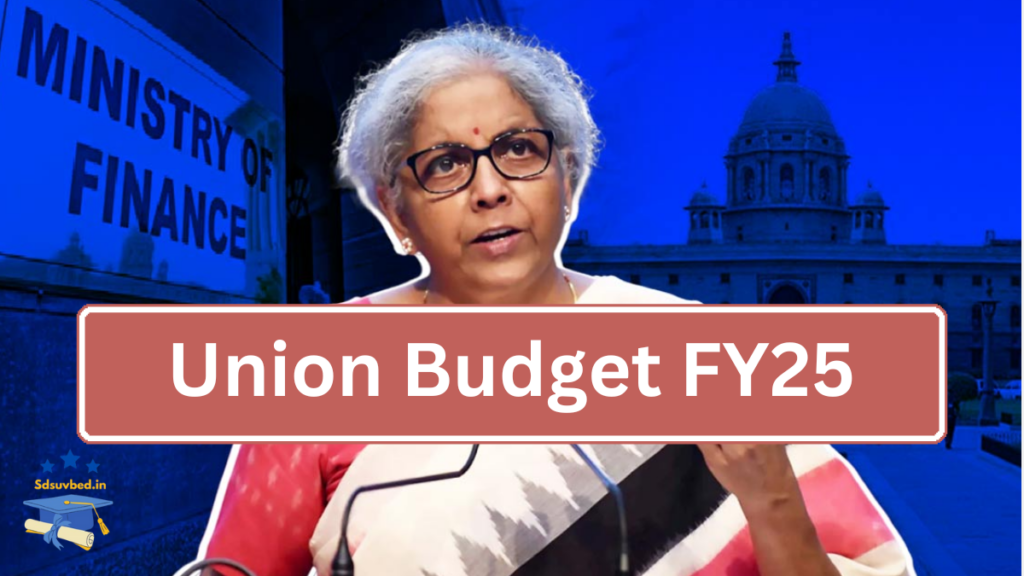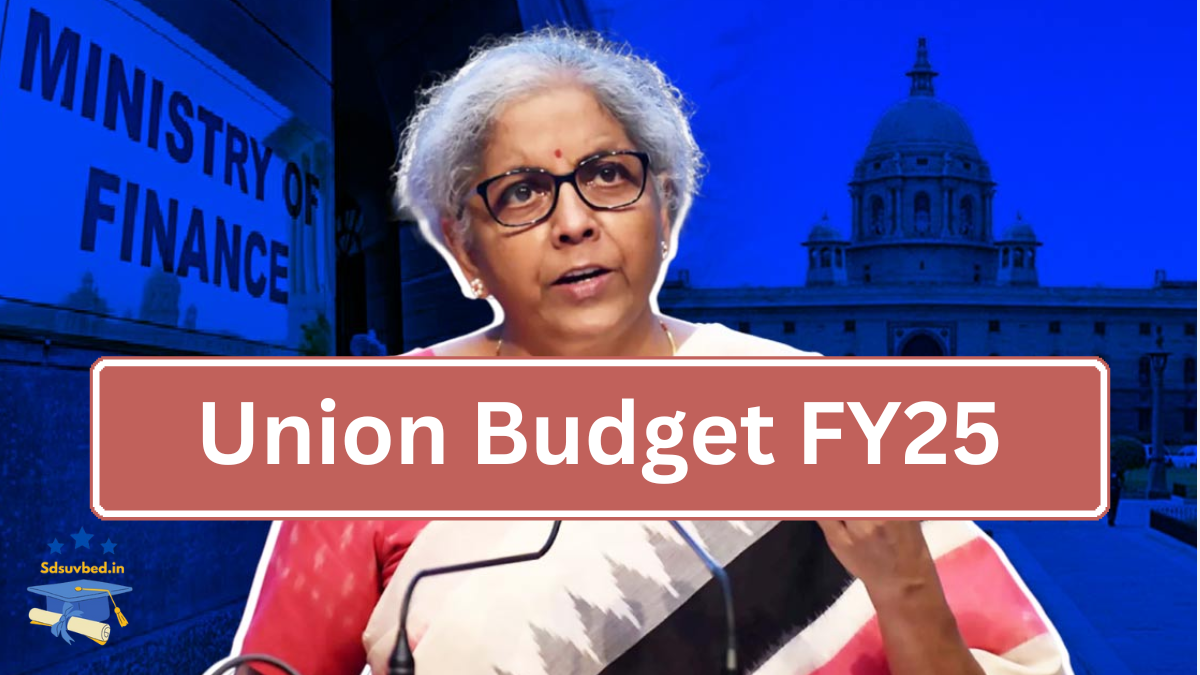The Finance Minister’s FY25 Union Budget has introduced some significant adjustments in customs duties and exemptions, which will impact both businesses and consumers. Some goods are set to become more affordable, while others are expected to see a price hike. Let’s take a closer look at what’s changing:

What’s Getting Cheaper?
The government is focusing on promoting innovation, healthcare, and sustainable manufacturing with a range of customs duty cuts and exemptions:
1. Healthcare: Saving Lives with Duty Exemptions
- Cancer Medicines: 36 life-saving cancer-related drugs are now fully exempt from customs duty, making treatment more accessible.
- Essential Drugs: For six other critical medications, the basic customs duty has been reduced to 5% to ease healthcare costs.
2. Electronics & Renewables: Paving the Way for Clean Tech
- Electronics Manufacturing: Basic Customs Duty (BCD) on open cells and components for LCD and LED displays has been slashed to 5%.
- Clean Tech Focus: The budget prioritizes clean tech manufacturing, including solar PV cells, wind turbines, motors, and batteries to fuel India’s green revolution.
Also Read: Key Stocks to Monitor Ahead of the Union Budget 2025: Investor Strategies and Insights
3. Critical Minerals: Fueling Growth in the Battery Sector
- Exemptions on cobalt powder, lithium-ion battery waste, and 12 other critical minerals will drive manufacturing growth and job creation in this crucial sector.
4. Marine: Smoothing the Way for Fisheries
- Fish Pasteur & Frozen Fish: Duties on fish Pasteur and frozen fish have been reduced from 30% to 5%.
- Fish Hydro Licenses: Duties on fish hydro licenses are cut from 15% to 5%, supporting the fishing industry.
5. Leather & Textiles: Boosting Manufacturing & Employment
- Leather Imports: BCD exemptions on wet blue and crust leather imports will stimulate the leather industry.
- Job Creation: A new scheme is aimed at creating 2.2 million jobs and generating ₹4 lakh crore in revenue for the leather and footwear sector. Reforms in the textile industry also support cotton farming sustainability.
6. Tourism: Welcoming More Visitors
- Visa-Free Waivers: Certain international tourists will now benefit from visa-free waivers, boosting inbound travel and tourism revenues.
7. Shipbuilding: Encouraging Industry Growth
- Raw Material Exemptions: For the next 10 years, raw materials used in ship manufacturing will be exempt from BCD, encouraging growth in India’s shipbuilding sector.
8. Telecom: Boosting Connectivity
- Ethernet Switches: The BCD on carrier-grade Ethernet switches has been reduced from 20% to 10%, making network infrastructure more affordable and accessible.
9. EVs & Mobiles: Supporting Green and Digital Technologies
- Electric Vehicles (EVs): Additional exemptions for 35 goods related to EV battery manufacturing will help lower costs and promote green innovation.
- Mobile Phones: 28 goods for mobile phone battery manufacturing are now exempted, fostering growth in the digital technology sector.
What’s Getting Costlier?
While there are plenty of benefits for businesses and consumers, some sectors will experience higher costs:
1. Electronics: Price Hike on Flat Panel Displays
- Flat Panel Displays: BCD on flat panel displays has increased from 10% to 20%, making TVs, monitors, and other related electronics more expensive for consumers.
2. Knitted Fabrics: Higher Import Costs
- Knitted Fabrics: Duties on knitted fabrics have been raised from 10% to 20%, leading to higher import costs, which may be reflected in the final product prices.
Also Read: ₹7,500 Per Month EPFO Pension Hike 2025 – Big Announcement Expected in Union Budget!
Impact Summary: A Balanced Approach
The government’s focus on these changes is clear—promote innovation, boost manufacturing, and support sustainable industries, while also making certain products costlier for the end consumer.
| Sector | Changes |
|---|---|
| Medicines | Full exemption on cancer drugs; 5% on others |
| Electronics | BCD reduced to 5% on LCD/LED components |
| Critical Minerals | Exemptions on cobalt, lithium, and more |
| Marine | Reduced duties on fish products |
| Leather & Textiles | Exemptions on leather imports; job creation |
| Tourism | Visa-free waivers for select tourists |
| Shipbuilding | Raw material exemption for 10 years |
| Telecom | Reduced duties on Ethernet switches |
| EVs & Mobiles | Exemptions for battery manufacturing |
| Electronics (Costlier) | Increase in duties on flat panels |
| Knitted Fabrics | Increased duties on knitted fabrics |
This budget is designed to catalyze growth in several sectors while making certain high-tech products and essentials more affordable. It’s a step towards a greener, more sustainable economy, but some products will inevitably become pricier. Let’s see how these changes unfold in the coming months!
FAQs
1. How will the customs duty exemptions impact healthcare costs in India?
The exemptions on 36 life-saving cancer drugs and reduced duties on six essential medicines will make critical treatments more affordable, reducing the financial burden on patients and their families.
2. Why has the government reduced duties on electronics and renewables?
The government aims to boost domestic manufacturing and support India’s clean energy transition by lowering the Basic Customs Duty (BCD) on LCD/LED components, solar PV cells, wind turbines, and EV batteries.
3. What are the benefits of duty exemptions on critical minerals?
Exemptions on cobalt powder, lithium-ion battery waste, and 12 other minerals will help strengthen India’s battery manufacturing ecosystem, supporting the EV and renewable energy sectors.
4. How will the new customs duty changes affect the marine industry?
Duties on fish pasteur, frozen fish, and fish hydro licenses have been significantly reduced, which will lower production costs for fisheries and make seafood more affordable.
Click here to learn more
Pari is a passionate writer known for captivating stories that blend imagination and reality. Inspired by travel, history, and everyday moments, Pari crafts narratives that resonate deeply with readers.

